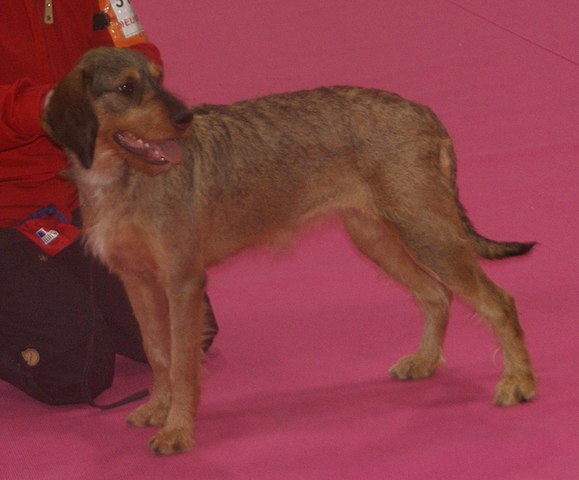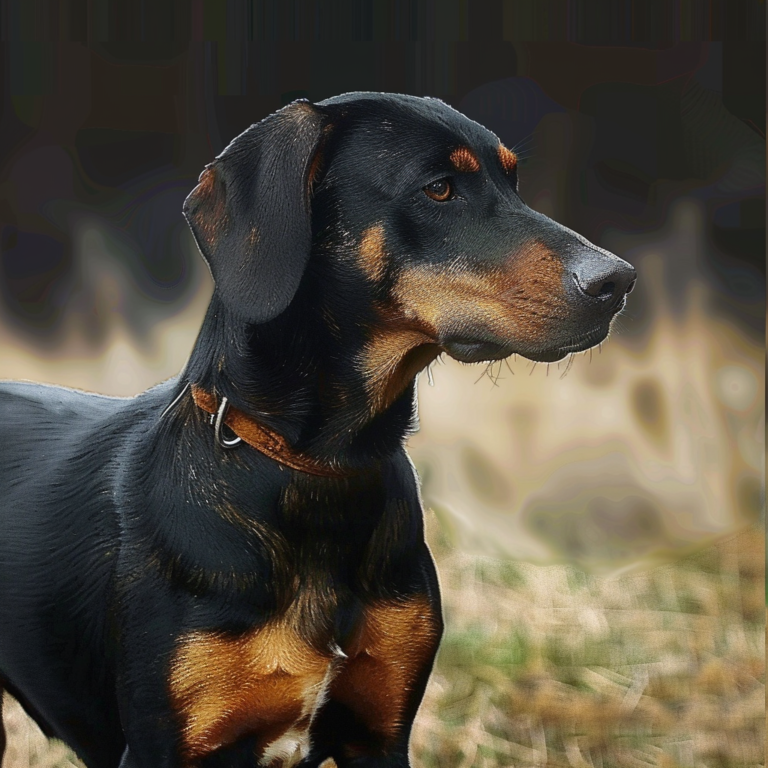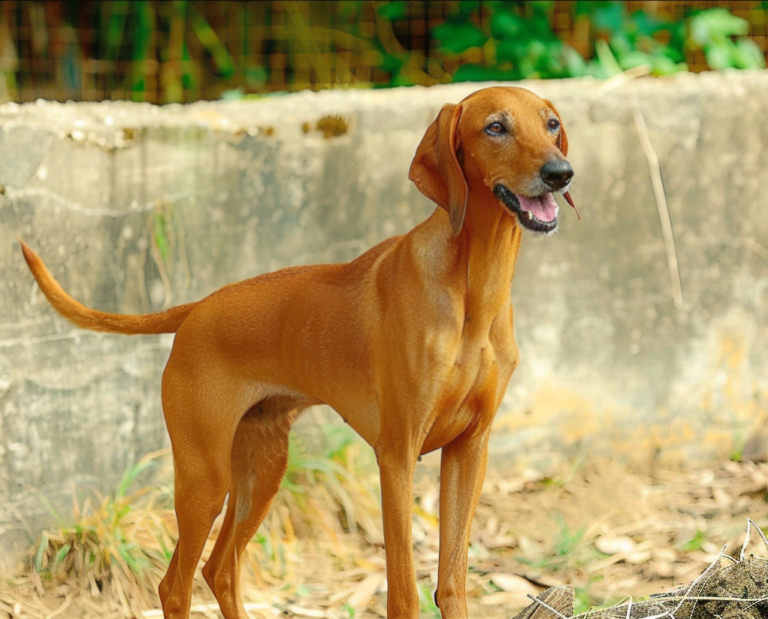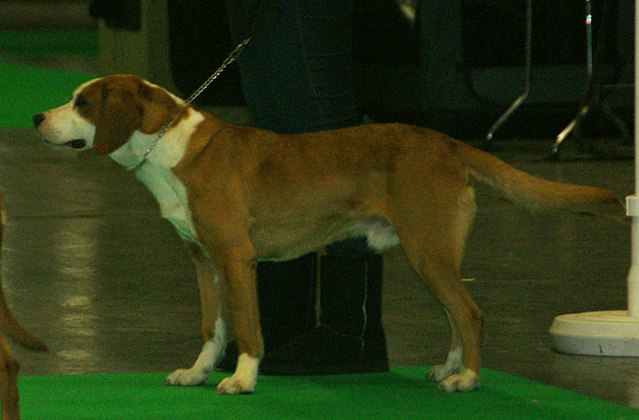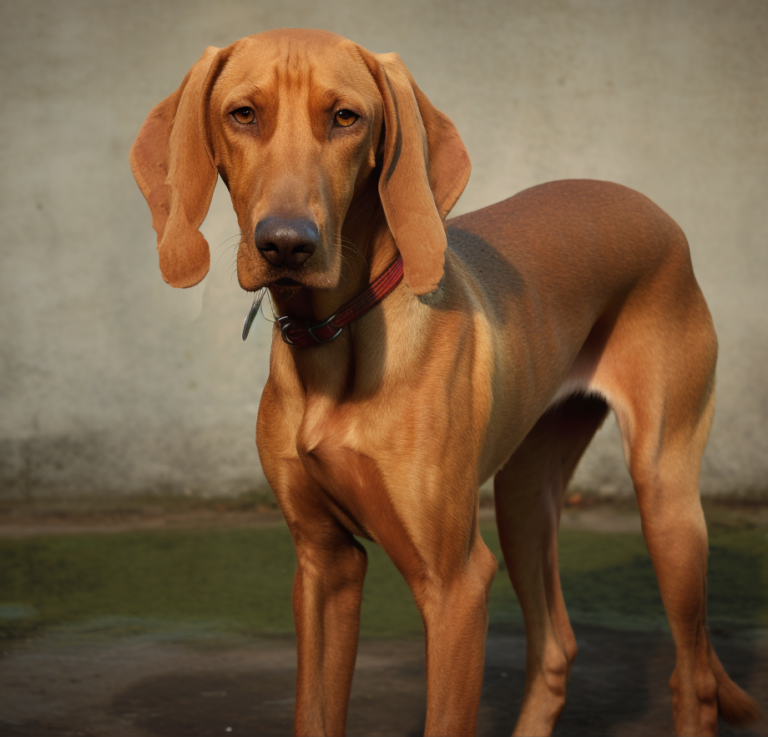The Styrian Coarse Haired Hound hails from Austria. The breed was created in the 1870’s by combining the Hanoverian Scenthound with the Istrian Coarse-Haired Hound. This hardy scenthound specializes in wild boar hunting and blood tracking, and can do so in rugged mountain terrain. Not normally kept as pets, they have been bred primarily for work and not companionship. This doesn’t mean one can’t make a good pet – just that it will take the right owner and the right situation in order for the dog’s needs to be met (and for the owner to be happy). Styrians require firm, active owners that live on large properties and are willing to provide plenty of mental stimulation.
The Styrian is recognized abroad by the Austrian Kennel Club and by the FCI. In its home country, the breed’s parent club and hunt club oversees all matings and makes sure that natural hunting ability stays alive and well in the bloodlines. Here in the United States it is recognized by the UKC but is a very rare breed, in part because of the high activity level and difficulty “fitting in” to the suburban or urban lifestyles that many pet parents expect.
Styrian Coarse Hairs are medium in size but are capable of doing a lot of destructive damage if not given enough exercise – mental or physical! They need to be given ample opportunities to run and play, and be provided with all sorts of stimulating activities and/or games to play. They need a minimum of one full hour per day of vigorous action – and will take more if given! The coursing ability test, designed to test a dog’s chase drive and running ability, would be a great sport for this breed that already enjoys the thrill of the run. Even more obvious – hunt tests and… well, taking the dog hunting in general are the absolute best ways to engage this breed.
Styrians can be ok in homes with older children although aren’t generally recommended for toddlers. When it comes to other dogs, they can take them or leave them. If wanting to include one in a multi-dog household, it is best to get him from a puppy and raise him with the other dog for best results. Finally, the breed doesn’t usually get along with smaller pets at all because of a high prey drive.
The Styrian Coarse Haired Hound is suspicious of strangers and can have a dominant streak towards his owners, particularly when he isn’t given clear boundaries. For these reasons he should only be owned by experienced dog people who understand how to handle this bossy hound. He needs to be given socialization early on, and obedience training must be started from puppyhood and continued throughout his life. Training itself will likely prove a difficult undertaking as this hound is stubborn and independent. An owner must be prepared to be consistent and firm while training. As if this isn’t enough, the breed is also highly vocal and is known for frequent and boisterous howling sessions – a trait that is not likely to be tamed too much with training.
The Styrian Coarse Hair can find the bustling and busy life of the average family a bit too much to take in. He may become anxious when inundated with nonstop loud sounds and crowds of people. He definitely doesn’t enjoy strangers visiting the home on a regular basis and may express his displeasure by acting out. While he can face a wild boar with ease and even excitement, he is much more in his element when hunting outside rather than being pushed into a chaotic urban setting. Prospective owners are urged to consider their lifestyle before thinking of adding this breed to their home.
Styrian Coarse Haired Hounds are best recognized by their coats, which are (as evidenced by the name) coarse without being shaggy. The coat on the head is shorter but the dogs will often still have a “stylish” mustache. They have hanging ears that lay flat to the head and are never overly large. To complete the picture, they should also possess a serious expression – one that befits these rugged hunters. This is a hard working breed which takes their hunting job seriously, and their appearance definitely reflects this!
One might ask what the benefit to such a difficult breed might be? Well, besides being superb at their original jobs, they are undeniably loyal and affectionate to their owners. In the right home they can make wonderful pets – as long as their needs are met. They are natural watch dogs and will always alert to the arrival of someone on the property, acting as a deterrent to would-be intruders without actually being dangerous animals. They are also very healthy hounds not known for frequent health issues. Finally, they are easy to groom and the harsh coat requires only a once-weekly brushing to keep it looking sharp. Baths should be very infrequent. For the hunter or active outdoorsy (rural) person, this can be a match made in heaven!
